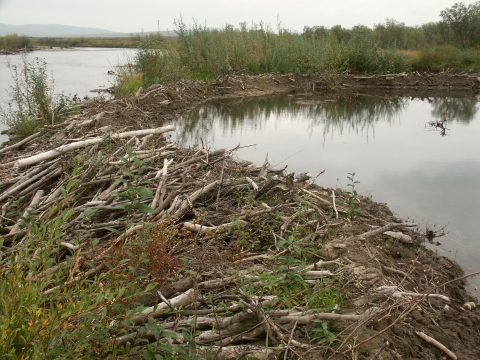States
Oregon, WashingtonUsing Beaver for Climate Change and Conservation Benefits
Beavers play an incredibly important role in our world, altering and shaping the landscape. As nature's "engineers," they build dams that provide deep water that protects them from predators, gives them access to plentiful food, and provides underwater entrances to their dens. Their tree-felling and dam-building activities create wetlands that provide homes for many other fish and wildlife species. Wetlands support almost half of the species on earth and nearly 50% of North America’s threatened or endangered species rely upon these aquatic environments for their survival.
Beavers mitigate the impacts of climate change climate change
Climate change includes both global warming driven by human-induced emissions of greenhouse gases and the resulting large-scale shifts in weather patterns. Though there have been previous periods of climatic change, since the mid-20th century humans have had an unprecedented impact on Earth's climate system and caused change on a global scale.
Learn more about climate change , helping conserve water during periods of drought and enhance wetland carbon storage. They are one of the most cost effective and sustainable solutions for ecological restoration and climate change resilience.
The Beaver Restoration Guidebook
The goal of this guidebook is to provide an accessible, useful resource for anyone involved in using beaver to restore streams, floodplains, wetlands, and riparian riparian
Definition of riparian habitat or riparian areas.
Learn more about riparian areas. It provides a practical synthesis of the best available science, an overview of management techniques, and case studies from throughout the western U.S.
During the winter and spring of 2015, five interactive workshops focused on the use of beaver in aquatic restoration were conducted to solicit input from land owners/managers, restoration funders, reviewers, and practitioners actively involved in beaver restoration and management. It was updated June 2017 to include a new chapter on urban beaver management and updated again in 2023.



